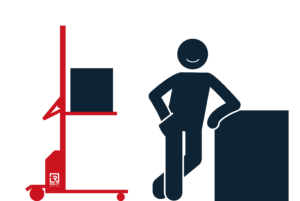Musculoskeletal disorders (MSDs) are a major concern in the workplace, affecting the health and well-being of workers.
 These disorders, affecting muscles and joints, are often caused by inappropriate working conditions, especially when workstations are not designed ergonomically.
These disorders, affecting muscles and joints, are often caused by inappropriate working conditions, especially when workstations are not designed ergonomically.
Recognizing the crucial importance of adapting workstations to prevent the development of Musculoskeletal Disorders (MSDs) is essential. By optimizing professional environments, companies can significantly contribute to preventing these disorders and preserving the health of their employees.
Adapting workstations involves several aspects. Firstly, it is necessary to consider ergonomics, ensuring that spaces are arranged to promote natural and healthy movements. This involves adjusting different workstations according to their tasks, thereby reducing physical constraints.
Additionally, the diversity of professional tasks must be taken into account when designing workstations. Some jobs require repetitive movements, while others involve lifting heavy loads. Adapting workstations to meet these specific requirements can help minimize the risks of MSDs.
Employee training is another crucial element in adapting workstations. Raising awareness among workers about good ergonomic practices, informing them about potential risks, and teaching them appropriate techniques to perform their tasks safely contribute to preventing MSDs.
MSDs.
Today, an increasing number of ergonomic solutions are designed to address these risks. Reglift, an expert in the field, offers ergonomic and customized handling solutions according to your needs. From carts that avoid the lifting of heavy loads to tools that relieve repetitive motions, your request is handled with care, ensuring the guarantee of finding the solution that suits you. By creating ergonomic professional environments, companies can not only prevent MSDs but also improve productivity, employee satisfaction, and reduce costs related to sick leave.